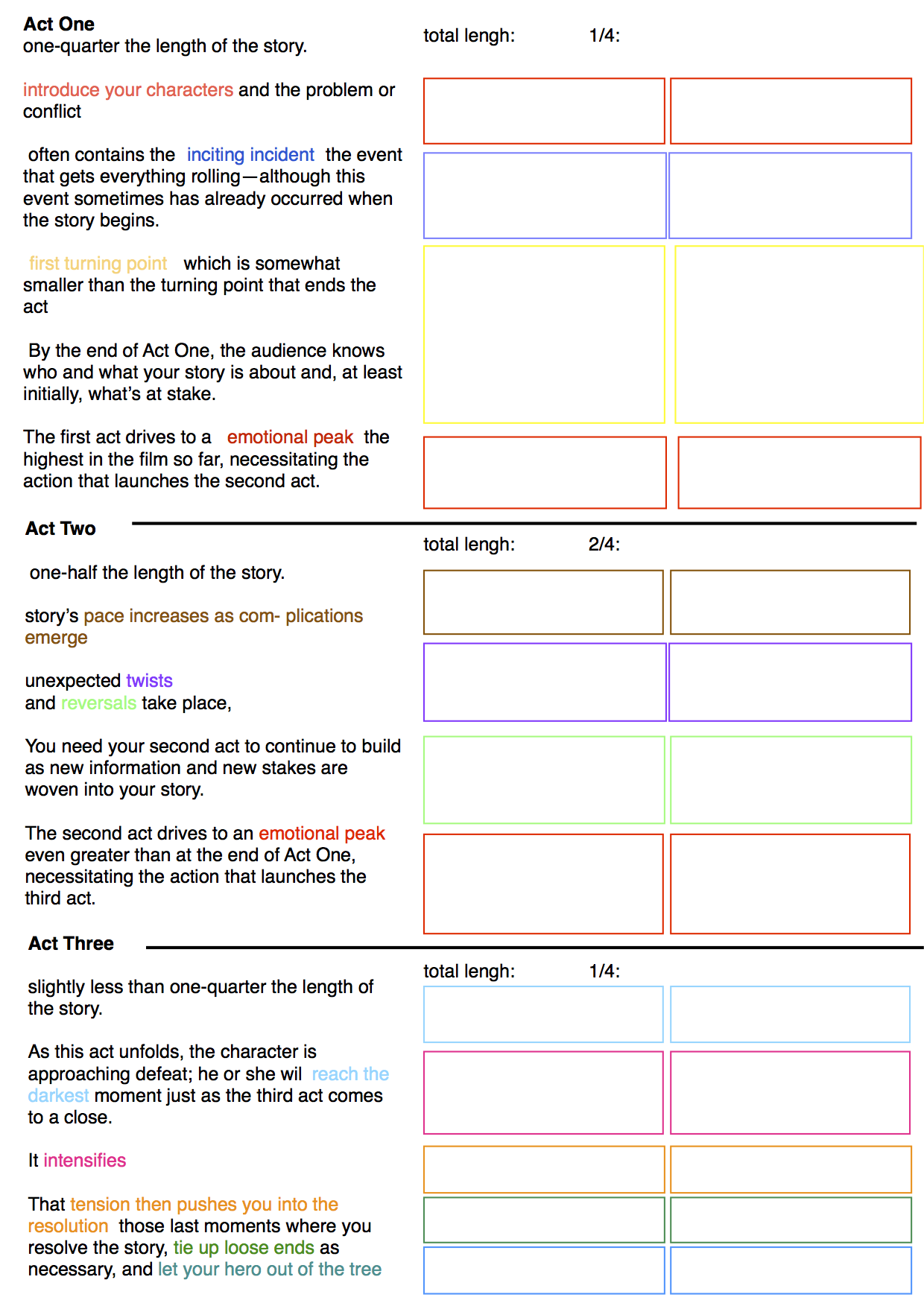Part 3 - Two column Script

Two Column Script - draft
This part is optional. Depending on the project you may want to skip it in this form and do it straight into the video editing software.
You might have noticed that our paper-edit, as explored in previous section, does not have info on B-rolls/cutaways or actuality shots (if any).
What is a two column script?
Paradoxically a two column script is actually most effective if it has three columns.
First column to help with the story structure. Second column for the audio track and third for the video track.
The story structure, is you have worked out what the structure would be.
The audio track, is more of a transcription track of pieces from interviews. eg what we did in previous section.
The Video track is for the b-roll, cutaways etc..
in generally you could do this in several draft, one were you put high level descriptions, and one where you fill in the details, eg put actual quotes from transcripts in audio column, and clip names/screenshots in video column.
eg a first draft could like this:
First draft example
| Structure | Audio | Video |
|---|---|---|
| Intro | Contributor introduces himself | Some kind of Opening shot |
| ... | ... | ... |
And this would be a more detailed draft.
subsequent draft
| Structure | Audio | Video |
|---|---|---|
| Intro | P: My Name is... | Opening shot of headquarter |
| ... | ... | ... |
Example: Two column script and 3 act structure
In previous sections we have seen the three act structure. Here is an example of how you work it into a template to help the thinking over the events of your story, in a two column script.

You can download this template: doc, pdf, pages, Google Doc Spreedsheet.
Structure: simplified
You can also go for a simple structure, eg just one act. Or if drawing on previous paper-edit process, and working on shorter piece could go for something like this:
- introduction
- theme/topic 1
- theme/topic 2
- theme/topic 3
- conclusion
And some times that would be more then enough.
However as mentioned above this is not a formula, the structure of your story should serve it's content. If you want to use a different structure you can read "The Seven Basic Plots" book and work from one of those, or use it for inspiration as a starting point and make your own.
Regardless of what you chose for the structure. Remember to consider McKee's writing from the inside out as an essential story crafting technique to make the most of this step. And refer back to the previous paper-edit process to see how that would apply.
Last but not least remember that is once you know the principles that you can master the art.
